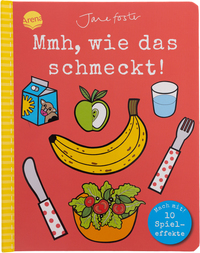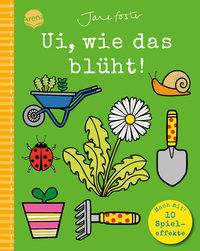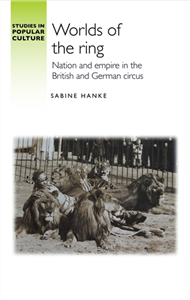Your Search Results
-
Sarah McKenzie Literary Agency
Sarah McKenzie Literary Management provides advice, advocacy and representation to Australian authors. As well as representing best-selling authors with a proven track record, we love to identify and champion talented new and emerging writers of children's fiction, commercial fiction, literary and narrative nonfiction.
View Rights Portal
-
Promoted ContentLiterature & Literary StudiesSeptember 2002
An anthology of women's travel writings
by Shirley Foster, Sara Mills
This anthology aims to challenge stereotypes of women travellers. Rather than simply presenting writings by Victorian women who travelled bravely around the world disregarding social convention and danger, the editors present a range of writing and possible ways of being a woman traveller. As well as the 'eccentric' woman traveller, the editors have included writings by those who might be seen as failed travellers, cautious and conventional travellers and those who did not conform to the adventurous heroine stereotype. Because travelling as a woman and writing as a woman presents the author with a number of textual problems which must be negotiated, Foster and Mills have chosen to include writings which confronted these problems and which resolved them (or did not resolve them) in different ways. These textual problems include the depiction of other women, the representation of spatial relations, the negotiations undertaken in relation to the adventure heroine narrative and character and the position taken by the author in relation to the representation of knowledge. These issues are all crucial in relation to travel writing by women , and the women, whose writing has been collected together in this anthology have made bold decisions in relation to them. ;
-
Promoted ContentLiterature & Literary StudiesOctober 2023
Reading David Foster Wallace between philosophy and literature
by Allard den Dulk, Pia Masiero, Adriano Ardovino
-
 Trusted Partner
January 2026
Trusted Partner
January 2026Mmh, wie das schmeckt! Mach mit!
Pappbilderbuch mit Klappen, Schiebern und Drehscheibe ab 2 Jahren
by Jane Foster, Jane Foster, Pia Emling
Das Pappbilderbuch zum Mitmachen und Ausprobieren mit Klappen, Schiebern und Drehscheibe ist ein Riesenspaß für kleine Entdecker ab 2 Jahren, die gerne alles ALLEINE machen wollen. Die Spieleffekte zum Ausprobieren von Tätigkeiten rund ums Essen sorgen für Abwechslung und Begeisterung. ICH KANN DAS ALLEINE! In diesem farbenprächtigen Pappbilderbuch mit Klappen, Schiebern und Drehscheibe lernen die kleinen Leser erste Wörter und Zusammenhänge kennen, indem sie alles rund um das Thema „Essen“ selbst ausprobieren können. Auf jeder Doppelseite gibt es ein neues Szenario zu entdecken: Zeit fürs Frühstück! Kannst Du schon die Milch einschenken und die Butter aufs Brot streichen? Na klar! Einfach am Schieber ziehen und die Klappen bewegen. Dank der leicht gängigen Spieleffekte ist das kinderleicht. Mit wunderbar plakativen und farbenprächtigen Illustrationen von Jane Foster.
-
 Trusted Partner
January 2026
Trusted Partner
January 2026Ui, wie das blüht! Mach mit!
Pappbilderbuch mit Klappen, Schiebern und Drehscheibe ab 2 Jahren
by Jane Foster, Jane Foster, Pia Emling
Das Pappbilderbuch zum Mitmachen und Ausprobieren mit Klappen, Schiebern und Drehscheibe ist ein Riesenspaß für kleine Entdecker ab 2 Jahren, die gerne alles ALLEINE machen wollen. Die Spieleffekte zum Ausprobieren von Tätigkeiten rund um den Garten sorgen für Abwechslung und Begeisterung. ICH KANN DAS ALLEINE! In diesem farbenprächtigen Pappbilderbuch mit Klappen, Schiebern und Drehscheibe lernen die kleinen Leser erste Wörter und Zusammenhänge kennen, indem sie alles rund um das Thema „Garten“ selbst ausprobieren können. Auf jeder Doppelseite gibt es ein neues Szenario zu entdecken: Wir gehen in den Garten! Kannst Du die Pflanzen gießen und ihnen beim Wachsen helfen? Na klar! Einfach am Schieber ziehen und die Klappen bewegen. Dank der leicht gängigen Spieleffekte ist das kinderleicht. Mit wunderbar plakativen und farbenprächtigen Illustrationen von Jane Foster.
-
 Trusted Partner
Literature & Literary StudiesJune 2021
Trusted Partner
Literature & Literary StudiesJune 2021Sara Paretsky
Detective fiction as trauma literature
by Cynthia Hamilton
Sara Paretsky is known for her influential V.I. Warshawski series, which transformed the masculine hard-boiled detective formula into a vehicle for feminist values. But Paretsky does more than this. Her novels also illustrate the extent to which detective fiction acts as a literature of trauma, allowing Paretsky to address the politics of agency in ways that go beyond the personal, for trauma always has a social and a political dimension. Paretsky's work also exploits the way detective fiction mirrors the writing of history. Here, Paretsky uses the form to expose the partiality of historical accounts - whether they be personal, institutional, or national - that authorise 'forgetting' of a particularly insidious kind. Significantly, all these issues are explored within the framework of the traditional hard-boiled detective novel. As a result, Paretsky's achievement forces us to acknowledge the deeply subversive potential of detective fiction.
-
 Trusted Partner
Trusted Partner
-
 Trusted Partner
Trusted Partner
-
 Trusted Partner
Trusted Partner
-
 Trusted Partner
Trusted Partner
-
 Trusted Partner
Humanities & Social SciencesMarch 2017
Trusted Partner
Humanities & Social SciencesMarch 2017Child, nation, race and empire
Child rescue discourse, England, Canada and Australia, 1850–1915
by Margot Hillel, Shurlee Swain, Andrew Thompson, John M. MacKenzie
Child, nation, race and empire is an innovative, inter-disciplinary, cross cultural study that contributes to understandings of both contemporary child welfare practices and the complex dynamics of empire. It analyses the construction and transmission of nineteenth-century British child rescue ideology. Locating the origins of contemporary practice in the publications of the prominent English Child rescuers, Dr Barnardo, Thomas Bowman Stephenson, Benjamin Waugh, Edward de Montjoie Rudolf and their colonial disciples and literature written for children, it shows how the vulnerable body of the child at risk came to be reconstituted as central to the survival of nation, race and empire. Yet, as the shocking testimony before the many official enquiries into the past treatment of children in out-of-home 'care' held in Britain, Ireland, Australia and Canada make clear, there was no guarantee that the rescued child would be protected from further harm.
-
 Trusted Partner
August 2001
Trusted Partner
August 2001So entscheide ich richtig
Mit Gefühl und Verstand gute Lösungen finden
by Foster, Charles
-
 Trusted Partner
Humanities & Social SciencesMarch 2017
Trusted Partner
Humanities & Social SciencesMarch 2017Jute and empire
by Andrew Thompson, John M. MacKenzie, Gordon Stewart
Dundee had an interesting role to play in the jute trade, but the main player in the story of jute was Calcutta. This book follows the relationship of jute to empire, and discusses the rivalry between the Scottish and Indian cities from the 1840s to the 1950s and reveals the architecture of jute's place in the British Empire. The book adopts significant fresh approaches to imperial history, and explores the economic and cultural landscapes of the British Empire. Jute had been grown, spun and woven in Bengal for centuries before it made its appearance as a factory-manufactured product in world markets in the late 1830s. The book discusses the profits made in Calcutta during the rise of jute between the 1880s and 1920s; the profits reached extraordinary levels during and after World War I. The Calcutta jute industry entered a crisis period even before it was pummelled by the depression of the 1930s. The looming crisis stemmed from the potential of the Calcutta mills to outproduce world demand many times over. The St Andrew's Day rituals in Calcutta, begun three years before the founding of the Indian Jute Mills Association. The ceremonial occasion helps the reader to understand what the jute wallahs meant when they said they were in Calcutta for 'the greater glory of Scotland'. The book sheds some light on the contentious issues surrounding the problematic, if ever-intriguing, phenomenon of British Empire. The jute wallahs were inextricably bound up in the cultural self-images generated by British imperial ideology.
-
 Trusted Partner
October 2009
Trusted Partner
October 2009Happy Christmas
Weihnachten so schön wie noch nie
by Foster, Juliana / Deutsch Dudas, Petra
-
 Trusted Partner
Humanities & Social SciencesJanuary 2025
Trusted Partner
Humanities & Social SciencesJanuary 2025Worlds of the ring
Nation and empire in the British and German circus
by Sabine Hanke
Worlds of the Ring is a groundbreaking exploration of the interwar European circus scene, focusing on the German Sarrasani and British Bertram W. Mills' circuses. This study illuminates the correlation between the circus's evolution and imperialism/nationalism, revealing how these enterprises shaped national identities for popular audiences. Examining the years 1918-45, the book takes a transnational perspective, uncovering the interplay of international and national forces that influenced the modern circus. Through case studies, it delves into the lives of individuals in the industry, using diverse sources like newspapers, legal documents, and performer archives. The book introduces the concept of Orientalism to analyse how circuses depicted foreign worlds, and provides a fresh perspective on interwar popular culture, globalising forces, and the circus's ties to European imperialism in the early 20th century.
-
 Trusted Partner
FictionNovember 2018
Trusted Partner
FictionNovember 2018Beard's Roman Women
By Anthony Burgess
by Graham Foster
Anthony Burgess draws upon an autobiographical episode to create Beard's Roman Women, the story of a man haunted by his first wife, presumed dead. But is she? A marvellously economical book, full-flavoured, funny, and heartfelt, showing its author at the height of his powers. This new edition is the first to be published with David Robinson's photographs for over 40 years. The text of the novel has been restored using the original typescripts, and Graham Foster's new introduction provides valuable insight into the fictional and biographical contexts of the novel. The text is fully annotated with a detailed set of notes and this edition includes the previously unpublished script for Burgess's television film By the Waters of Leman: Byron and Shelley at Geneva, and a rare piece of Burgess's writing about Rome.
-
 Trusted Partner
Trusted Partner
-
 Trusted Partner
Trusted Partner
-
 Trusted Partner
Trusted Partner
-
 Trusted Partner
Trusted Partner
-
 Trusted Partner
Trusted Partner





























